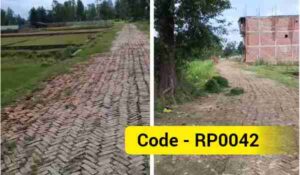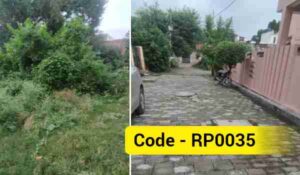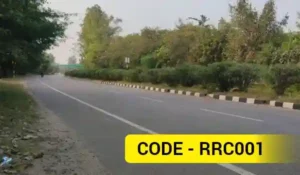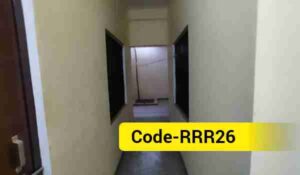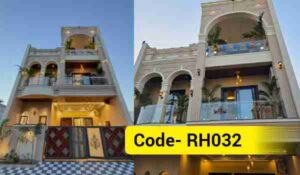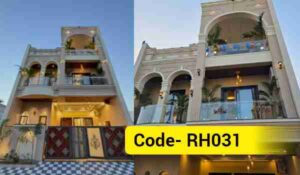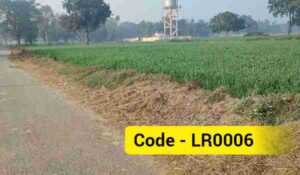Want to Avoid Property Frauds? Learn These Real Estate Legal Terms!
Lucknow, the capital of Uttar Pradesh, is a rapidly developing city where opportunities for investment and growth in the real estate sector are constantly expanding. Buying, selling, or managing property can be a complex process, especially when it involves legal terminology and procedures. This blog explains key property-related legal terms in detail, particularly in the context of the Lucknow Development Authority (LDA) and the Uttar Pradesh Real Estate Regulatory Authority (UPRERA). This guide provides essential information for buyers, investors, and property owners. All legal-laws discussed apply across Uttar Pradesh, including Lucknow and Raebareli.

Property-Related Legal Terminology
1. Sale Deed
A Sale Deed is the most critical legal document for transferring property ownership. It formalizes the sale of property between the buyer and seller, including details of the property, sale price, and terms. In Lucknow, it must be registered at the Sub-Registrar’s office (e.g., Hazratganj or Gomti Nagar). Without registration, a Sale Deed is not legally valid.
Importance: The Sale Deed serves as proof of ownership and helps prevent disputes.
2. Registration
Registration is the process of recording property ownership in government records. Under the Registration Act, 1908, documents such as Sale Deeds, Gift Deeds, or Lease Deeds must be registered. In Lucknow, this process is completed at the Sub-Registrar’s office with biometric verification and payment of stamp duty.
Process in Lucknow: Stamp duty is calculated based on the circle rate (7% for men, 6% for women).
3. Title Deed
A Title Deed is a document that certifies the legal ownership of a property. It proves that the owner is rightfully entitled to the property. In Lucknow, conducting a Title Search before purchasing is essential to ensure the property is free from disputes or liabilities.
Tip: Verify records for the past 30 years to confirm a clear title.
4. Encumbrance Certificate (EC)
An EC is a certificate that confirms a property is free from outstanding loans, mortgages, or legal disputes. It is obtained from the Sub-Registrar’s office and typically covers records for 13–30 years.
Use in Lucknow: Checking the EC is mandatory when buying property in LDA colonies (e.g., Gomti Nagar).
5. Mutation
Mutation is the process of updating property ownership in revenue records (e.g., Khasra/Khatauni). In Lucknow, this is done through the Municipal Corporation or Tehsil office after registration.
Importance: Without mutation, issues may arise with property tax and other government benefits.
6. Power of Attorney (POA)
A POA is a legal document that authorizes a person to perform property-related tasks (e.g., sale, management) on behalf of the owner. It can be revocable or irrevocable. In Lucknow, registering a POA is recommended to prevent misuse.
Example: If the owner is abroad, they can grant a POA to someone to sell the property.
7. No Objection Certificate (NOC)
An NOC is a certificate stating that the relevant authority (e.g., LDA, bank, or housing society) has no objection to the property transaction. It may be required for sales, construction, or loans.
In Lucknow: An NOC from LDA is essential, especially for leasehold properties.
8. Khasra and Khatauni
-
Khasra: A revenue record detailing the land’s map and specifics.
-
Khatauni: A record of ownership and land use. In Lucknow, these documents are obtained from the Tehsil office and are crucial in rural or semi-urban areas.
9. Lease Deed
A Lease Deed is an agreement where a property is rented out for a specific period. In Lucknow, many LDA properties are leased for 99 years. It includes terms, rent, and duration.
Importance: Registering a Lease Deed is mandatory, especially for long-term leases.
10. Stamp Duty
Stamp Duty is a tax paid to the government during property registration. In Lucknow, it is calculated based on the circle rate (7% for men, 6% for women, with some exemptions).
Example: For a ₹50 lakh property in Gomti Nagar, stamp duty may be approximately ₹3.5 lakh (men) or ₹3 lakh (women).
11. Circle Rate
The circle rate is the minimum property value set by the government, used to calculate stamp duty and registration fees. In Lucknow, it varies by area (e.g., Hazratganj: ₹50,000–₹1,00,000/sq. meter; Gomti Nagar: ₹20,000–₹50,000/sq. meter).
12. Leasehold and Freehold
-
Leasehold: Property leased for a fixed period. Many LDA colonies in Lucknow are leasehold.
-
Freehold: Complete ownership without a time limit. Converting leasehold to freehold requires paying a fee to LDA.
Process in Lucknow: Applications for freehold conversion can be submitted via LDA’s online portal (ldaonline.in).
13. Land Use Conversion
The process of converting agricultural land to residential or commercial use. In Lucknow, permission from LDA or the Tehsil office is required.
Example: Converting agricultural land on Sultanpur Road to residential use requires fees and approval.
14. Encroachment
Illegal occupation of property. In Lucknow, LDA and Lucknow Municipal Corporation (LMC) regularly conduct drives to remove encroachments.
15. RERA (Real Estate Regulatory Authority)
RERA is a law regulating the real estate sector to protect buyers’ interests. In Lucknow, all new projects must be registered with UPRERA (up-rera.in).
Use in Lucknow: Check project status for areas like Gomti Nagar Extension or Raebareli Road on the UPRERA portal.
16. Completion Certificate (CC)
A certificate issued by LDA confirming that a building’s construction complies with bylaws.
17. Occupancy Certificate (OC)
A certificate permitting the use or residence of a building, ensuring it is safe and usable.
18. Joint Ownership
When two or more individuals co-own a property. This is common in family properties in Lucknow.
Tips and Precautions
-
Title Search: Verify 30 years of records before purchasing. Confirm EC, NOC, and RERA registration.
-
Legal Advice: Have a property lawyer verify documents.
-
LDA and UPRERA Portals: Check circle rates, project details, and approved colonies on LDA (ldaonline.in) and UPRERA (up-rera.in) websites.
-
Mutation: Complete mutation after registration to avoid issues with property tax and benefits.
-
Dispute Resolution: File complaints in civil courts or with UPRERA for property disputes.
Conclusion
Understanding property-related legal terminology is essential for secure investment and management in Lucknow’s real estate market. Authorities like LDA and UPRERA ensure transparency and protection for buyers. With the right knowledge and legal guidance, you can confidently navigate the real estate landscape in Lucknow.



